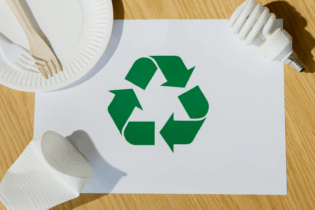 The plastics industry has always faced challenges regarding the re-use and recycling of plastic products. Debates are ongoing about how to reduce the use of plastics, however experts in the industry feel that more of an emphasis should be placed on the recyclability of the material.
The plastics industry has always faced challenges regarding the re-use and recycling of plastic products. Debates are ongoing about how to reduce the use of plastics, however experts in the industry feel that more of an emphasis should be placed on the recyclability of the material.
Last month, plastics recycling sessions were held in Dubai at the 2016 Recycling Confex. Presenters at the conference noted that when it came to recycling, getting the greater public to recycle more remains one of the biggest challenges.
How South Africa encourages plastics recycling
South Africa took a step in the right direction towards better recycling practices when it passed laws encouraging plastics recycling. In the country, companies such as Coca-Cola use recycled-content plastic, while local grocers such as Checkers have introduced 100% recyclable plastic shopping bags. Other grocers such as Pick n Pay promote recycling by providing several recycling facilities at their stores.
Too little being recycled and bad press
Despite the move towards better recycling, Annabe Pretorius, general manager of the South African Plastics Recycling Organisation (SAPRO) said that “bad press” surrounding plastic litter remains a problem.
Pretorius highlighted that approximately 310,000 tonnes of plastic scrap was diverted from landfills in South Africa in 2015, with roughly 59% of that being postconsumer plastic, including beverage bottles and plastic films.
However, she stressed that there was still a “vast amount” that we don’t recycle.
Changing the mindset of the greater public
At the conference, members in the industry noted that bringing the wider public up to speed on correct and constant recycling was the most difficult part.
“We have to change the mindset,” said Surendra Borad, chair of the Bureau of International Recycling (BIR) Plastics Committee. “The most difficult part is we have to start at the grassroots level – the public.”
Sridhar Rao of the Saudi Arabia-based Creative Recycling World Company also weighed in on the lack of effective plastics recycling. He said awareness of plastic recycling in the Gulf Cooperation Council (GCC) region “has to start at the school level”. He also noted that plastic currently made up between 12% and 16% of the municipal solid waste stream in the Middle East.
On a positive note, Anastasios Bereketidis from Tomra Sorting Solutions in Germany highlighted that PET bottles had become one of the most commonly recycled types of plastic scrap globally.
“Maybe there is a potential for what has happened with PET in the last five years” to be emulated with other types of plastic scrap,” she suggested.
*Parts of this article was sourced from Recycling Today
 The plastics industry has always faced challenges regarding the re-use and recycling of plastic products. Debates are ongoing about how to reduce the use of plastics, however experts in the industry feel that more of an emphasis should be placed on the recyclability of the material.
The plastics industry has always faced challenges regarding the re-use and recycling of plastic products. Debates are ongoing about how to reduce the use of plastics, however experts in the industry feel that more of an emphasis should be placed on the recyclability of the material.






